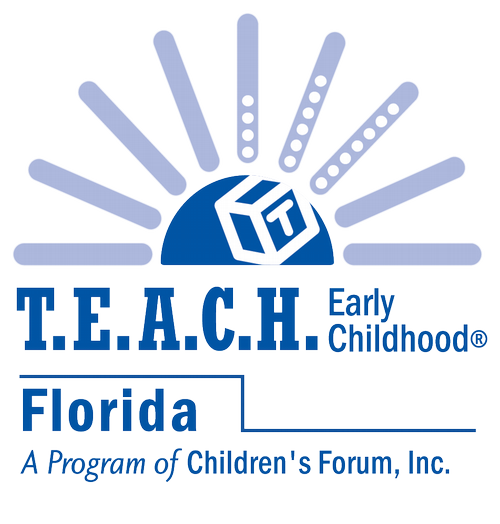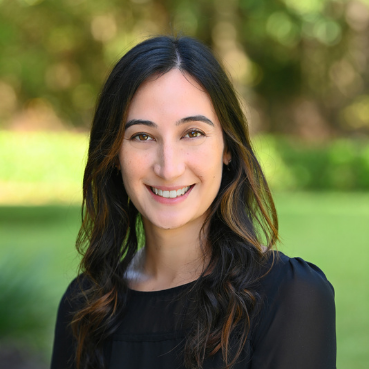Early Childhood Education, Early Childhood Development (B.A.E.)

Program at a Glance
- Degree: Bachelor of Arts in Education
- Credit Hours: 120
- Certification: Non-Licensure Program
- Location: Online
- Application Deadlines: Fall Term - April 1; Spring Term - Nov. 15; Summer Term - April 1
- Related Programs: PreK/Primary Licensure (B.A.E.), Early Childhood Minor, Honors in the Major
Program Description
The Bachelor of Arts in Education with a concentration in Early Childhood Development is a fully online, non-licensure program that prepares graduates to support the growth, learning and well-being of young children in various settings. Designed for individuals passionate about early childhood education, this flexible program equips students with the knowledge and skills to work as preschool teachers, Early Head Start and Head Start professionals, child life specialists, preschool directors, learning coaches and child and family advocates.
Grounded in developmentally appropriate practices and aligned with national standards in early childhood education, the program emphasizes the importance of responsive care and education from birth through age eight. Students explore key topics such as child development, early learning environments, family and community engagement and the social-emotional and cognitive needs of young children.
Field-based learning is an essential component of the program. The final practicum experience can be tailored to each student’s professional goals and current work setting. Those already employed in early childhood or educational environments may complete their practicum at their place of employment, making the program especially accessible to working professionals.
With rolling admission, students can begin the program in any term and progress at their own pace. This flexibility makes it an ideal option for both traditional students and those balancing work and family responsibilities.
Graduates of the program are well-prepared to enter the early childhood workforce or pursue advanced degrees in education, child development or related fields. Additionally, students may choose to complete additional coursework to meet Florida's alternative teacher certification requirements for PreK/Primary (Age 3–Grade 3) credentialing.
We’re proud to be included in the T.E.A.C.H. Early Childhood® Training Directory and to offer degree programs eligible for this impactful scholarship. Funded by the Florida Division of Early Learning, the T.E.A.C.H. Early Childhood® Scholarship Program provides financial and academic support to early learning educators, directors, family child care providers, and out-of-school-time professionals. By covering the cost of credentials, college courses, certificates and degrees in early childhood education, this program helps make higher education more accessible and achievable for those dedicated to supporting young children and their families.

Program Details
-
Course Catalog
Explore the courses that will prepare you to support the learning and development of young children. The course catalog outlines the required coursework for the B.A.E. in Early Childhood Education with a concentration in Early Childhood Development, including foundational classes in child development, curriculum planning and family engagement. Each course is designed to help you build the knowledge and practical skills needed to create nurturing environments that promote early learning, well-being and school readiness. -
Field Coursework
This practicum course gives you the chance to apply what you’ve learned in real early childhood settings. With support from an experienced mentor, such as a master teacher, instructional coach, or university supervisor, you’ll gain hands-on experience in teaching, assessing young learners, and supporting the needs of children and families. If you're currently working in an early childhood or educational setting, you may be able to complete your practicum at your job site with approval from your advisor and program faculty. Before beginning, all students must complete the required background clearance process to ensure a safe and supportive environment for children.
- A level 2 background check (including fingerprints) must be completed, verified and submitted (prior to the start Term 5) to the Office of Academic Support and Information Services (OASIS) before enrolling in Early Childhood (EEC prefix) courses. Students who already have a valid/current background check should submit documentation to the Early Childhood Program Director who will provide it to the OASIS.
Career Outlook
There is a strong and growing demand for professionals with expertise in early childhood development. Graduates of this program are prepared to work in a variety of settings that support young children and their families. Many pursue careers as preschool teachers, child life specialists, learning coaches, preschool directors and child advocates. Others use this degree as a foundation for graduate study in education, child development, counseling or social work.

Admission Requirements
-
Freshman
Ready to apply to UNF? Learn more about Freshman Admissions Requirements. -
Transfer
Ready to apply to UNF? Learn more about Transfer Admissions Requirements. -
International
Ready to apply to UNF? Learn more about International Admissions Requirements. -
Additional Program Requirements
- While this program is fully online at the upper-level, there is a lower-level prerequisite course required, EDF 1005 - Introduction to the Teaching Profession. This course requires 2 full days of observation in public schools in the local Jacksonville area during the semester. If you are not applying with EDF 1005 (or EDF X005) completed at a previous institution, you will be required to take this course and attend the in-person observation days in Jacksonville.
- A level 2 background check (including fingerprints) must be completed, verified and submitted (prior to the start Term 5) to the Office of Academic Support and Information Services (OASIS) before enrolling in Early Childhood (EEC prefix) courses. Students who already have a valid/current background check should submit documentation to the Early Childhood Program Director who will provide it to the OASIS.
Program Contacts
Dr. Katrina Hall
Program Director and Professor
Erica Hughes
Academic Advisor
Jade Yuen
Associate Director of Outreach, Recruitment and Retention








